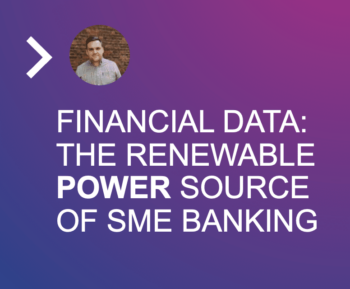With its article headlined “The world’s most valuable resource is no longer oil, but data” The Economist, back in 2017, paved the way for the rallying cry of the last few years that “data is the new oil”. The presumption then was the more oil or data you have, the better.
But, when it comes to data, some technology entrepreneurs are arguing that it’s not quantity that counts but quality; a new sustainable energy source that is powering global trade and commerce, where quality data is the fuel for analytics. Carly Fiorina, former CEO at Hewlett Packard states, “the goal is to turn data into information and information into insight”.
We’ve reached a point where we are always going to have too much data. It’s entering the business world at an unprecedented level. According to business cloud company Domo, 90% of the world’s data was created in the last two years, with 2.5 quintillion bytes of data currently being generated every day. And it’s not stopping.
We’re in danger of data slowing our businesses down, impeding our progress if we don’t learn to harness data effectively. In the same way that Marie Kondo scythes her way through the domestic clutter of clothes and knick-knacks to get to the stuff of real value to an individual, we need to find ways to drill down to the granular, to the nuggets of truly valuable data, and then unpick that data to achieve real insights and transform business decisioning.
Refined data for redefined processes
I believe that some of the UK’s leading banks are well on their way to doing this and are redefining the way they serve their customers. Using latest technology that allows customers to provide their bank with access to their accounting data, so that automated processes can be set in motion to strip out surplus data, mine those nuggets that really do matter and extract value.
One of the key advantages to new generation technology like this is that banks are able to work with data generated as recently as the day before, unlike in the past when decisioning, for example on a loan, was often based on an audit that could have been carried out 18 months ago. Then, by combining this real-time, up-to-the-minute accounting data with the transactional data they will already have for their customer, the lender is able to make a fast, nuanced and safe decision, both for the customer and themselves. And going forward, by continuing to share accounting data, there continues to be business benefit for both the customer and the lender. For the lender’s part, the bank can reduce costs by automating the monitoring of some accounts to mitigate the risk of default, whilst freeing up the time and associated costs of RMs to provide tailored advice or to suggest and offer new products to customers. Reduced costs can also be directed into offering cheaper, more competitive loans or extending the bank’s portfolio of lending products.
For customers, the benefits are considerable too.
At the most basic level, SMEs who provide lenders with access to their accounting data, have all the origination pain and time costs removed from a loan application. The process of collating pieces of paper, emails and spreadsheets, which could take days, is reduced to a few key strokes. And once the loan is in place the benefits continue to accrue. Customers get to view their real-time cashflow to help manage their business – being presented with a choice of products most suitable to circumstance and needs. Or perhaps the data will flag up to the lender that a customer would benefit from a different blend of products such as a smaller loan and a bigger overdraft or vice versa. And when a bank is able to read the story of a particular company in their accounting data, the pattern of creditors and suppliers locked into a 60 or 90 day payment cycle for instance, or current issues with post pandemic supplies and haulage, there is huge scope for advice and proactive mitigation of potential problems.
Deeper SME insights
But of course for every 1,000 SME customers a bank might service, there will be 1,000 different accountancy packages, all throwing up 1,000 different sets of data to be trawled through. You can almost hear the data swooshing around.
That’s why Validis continues to develop products and capabilities to standardise accounting data, so that banks can quickly read the data from all the different accountancy packages on the market in exactly the same way. By doing this, the value of customers’ accounting data to the bank is hugely enhanced. Not only can it be crunched to improve the service or target products for the individual customer, it can be aggregated to provide the bank with market segment insights.
For instance, if a large construction company customer goes bust, a lender can, at the touch of a button, review the potential impact on other bank customers in the supply chain, or identify who might be susceptible to the same business pressures. Similarly, broad risk across market segments can be identified and then analysed at the granular customer level.
For many companies the pandemic has stress tested a range of core systems and business practices.
For lenders, looking to provide SMEs with financial support, the ability to explore and investigate data has been a game changer. Understanding how a company had performed in the last three years was no longer much help. Lenders needed to see what had been happening last week, even yesterday and the ones that were able to take advantage of standardising accounting data software, were the ones able to nurture their portfolio of customers through the worst, almost micro-support them through the pandemic. And now that some companies, particularly in the retail and hospitality sectors, are beginning to get back on their feet, these same processes will help lenders manage ongoing monitoring and performance triggers.
In a recent article, Gilad Amir of Pollen Capital, said that “when the exponential growth of different, rich data sources and the availability of that data is not used to automate or augment faster and smarter decision, the abundance of data adds complexity and confusion, and ultimately translates into more manual work.”
But when data is used to automate and augment, to make business faster and more efficient, to create insights and formulate predictions, we are eliminating hours of manual work.
And even if we reject the concept that data is the new oil, used correctly, it is certainly powering a renewable and sustainable approach to banking – matching the scale of change in the SME market.


